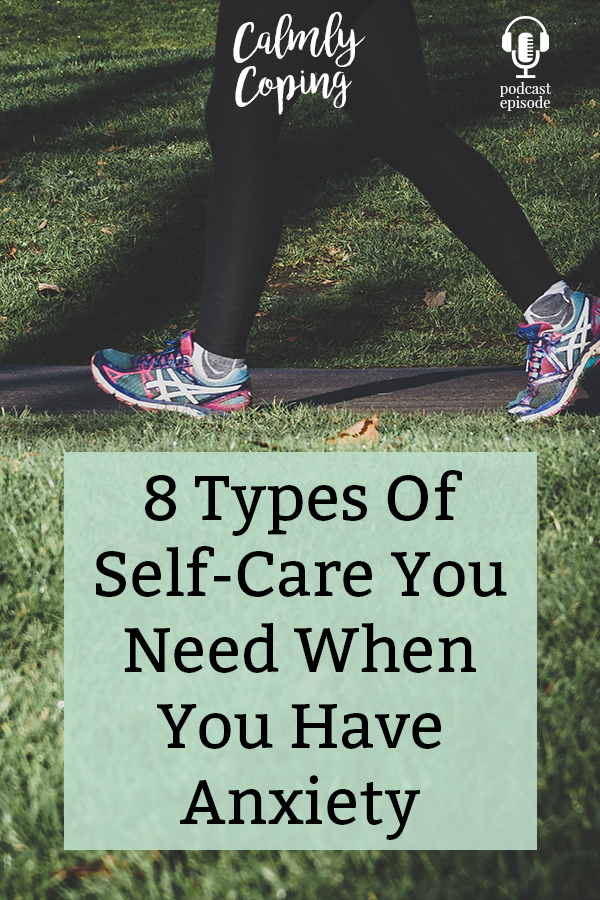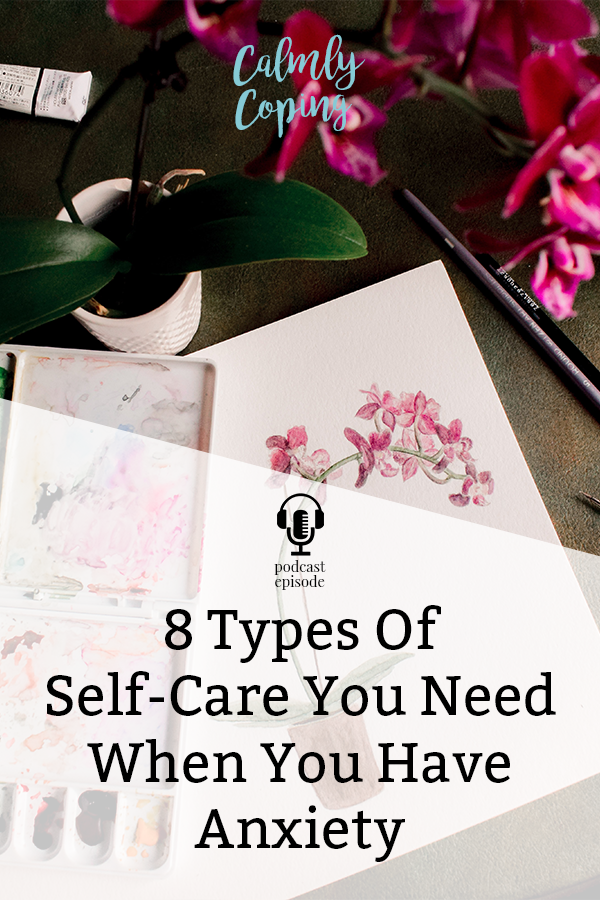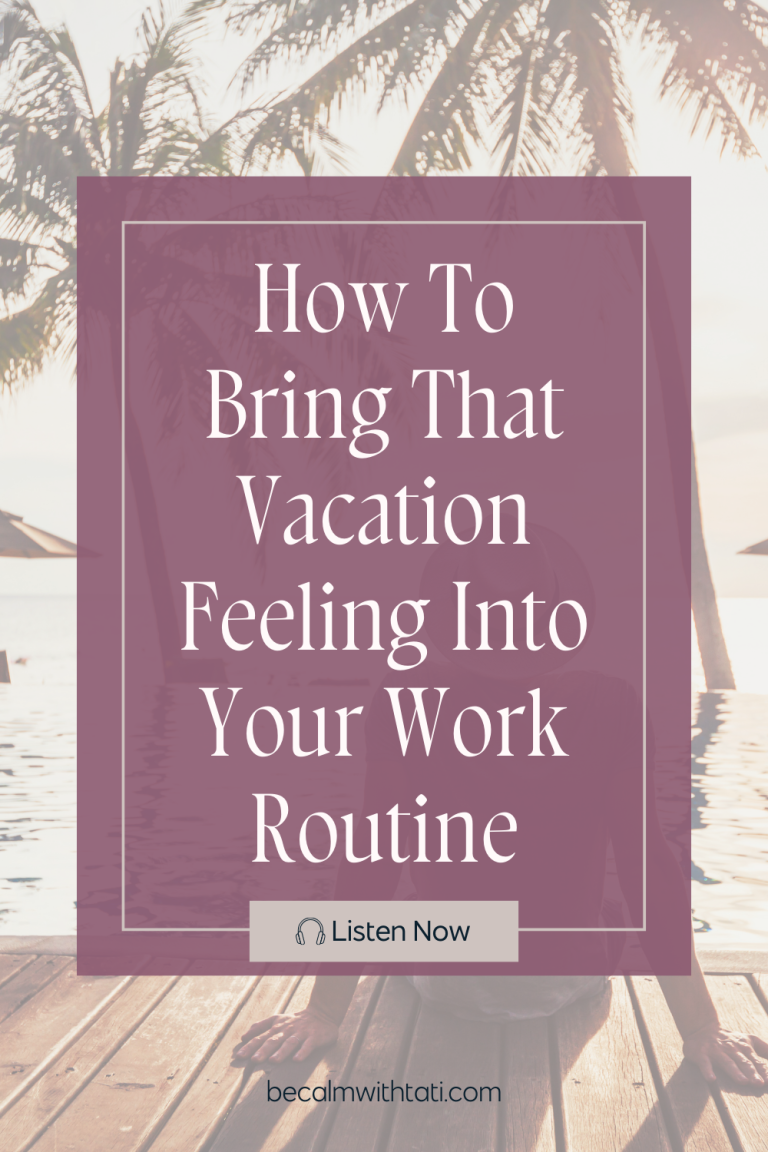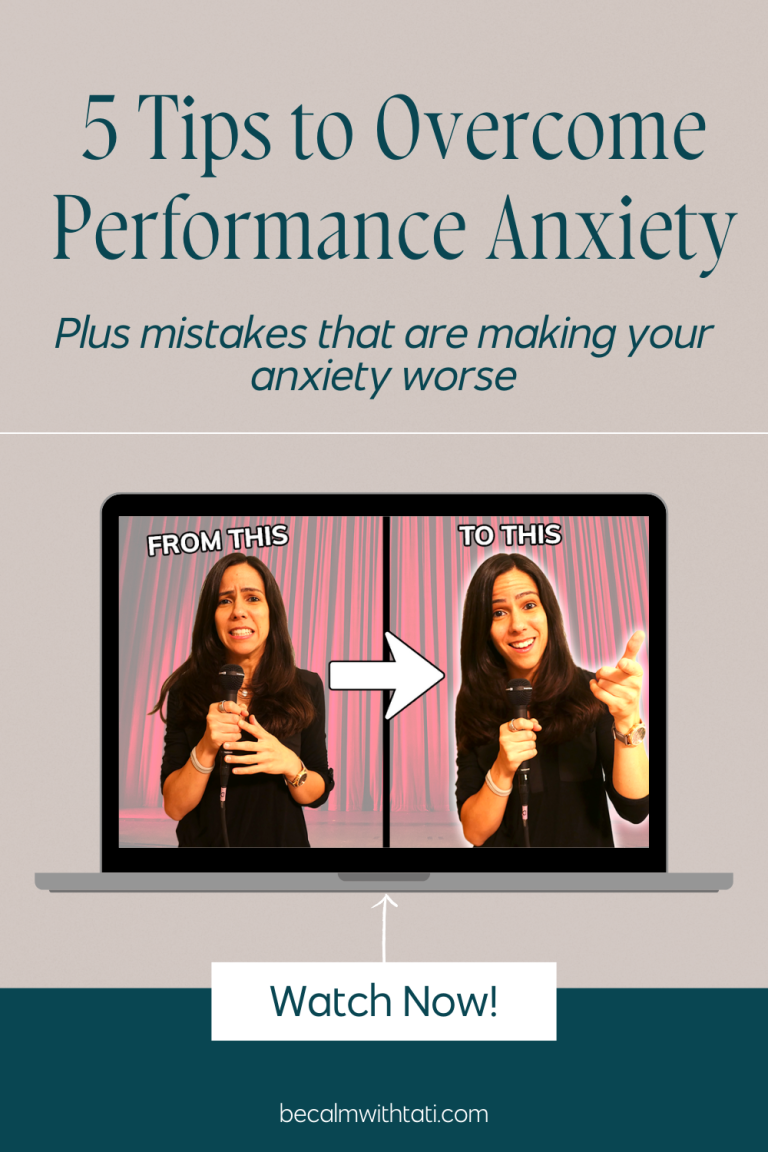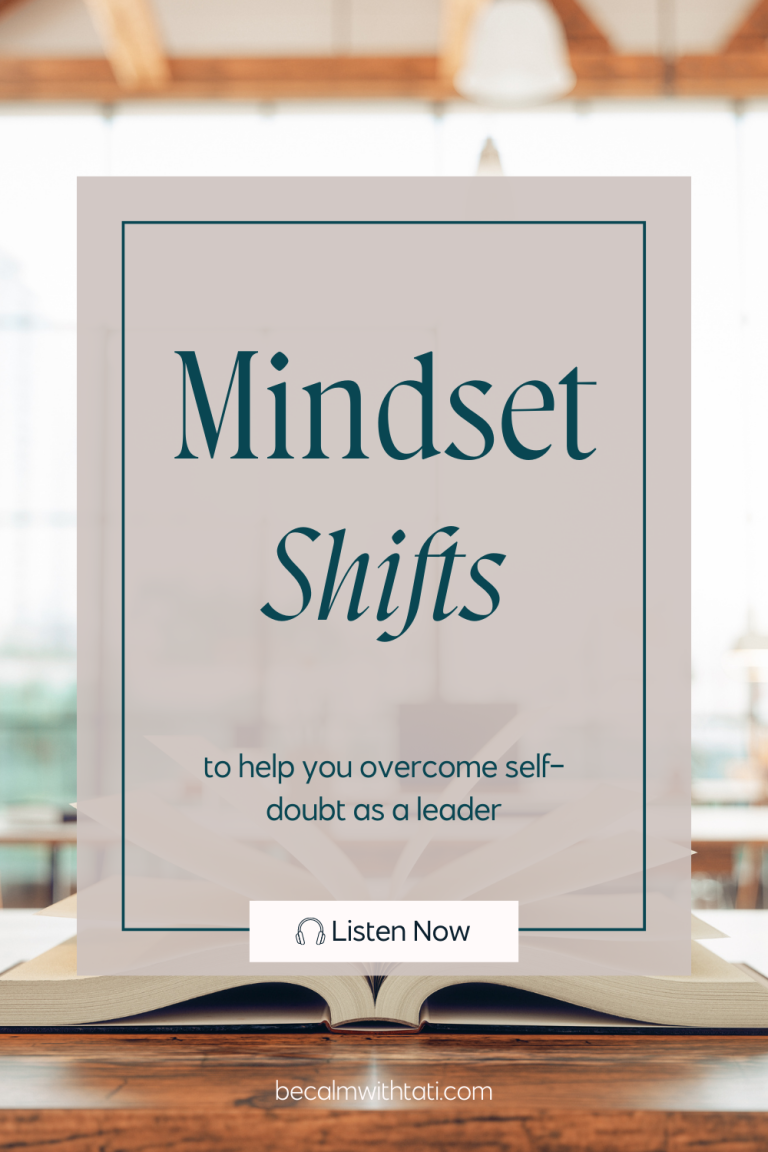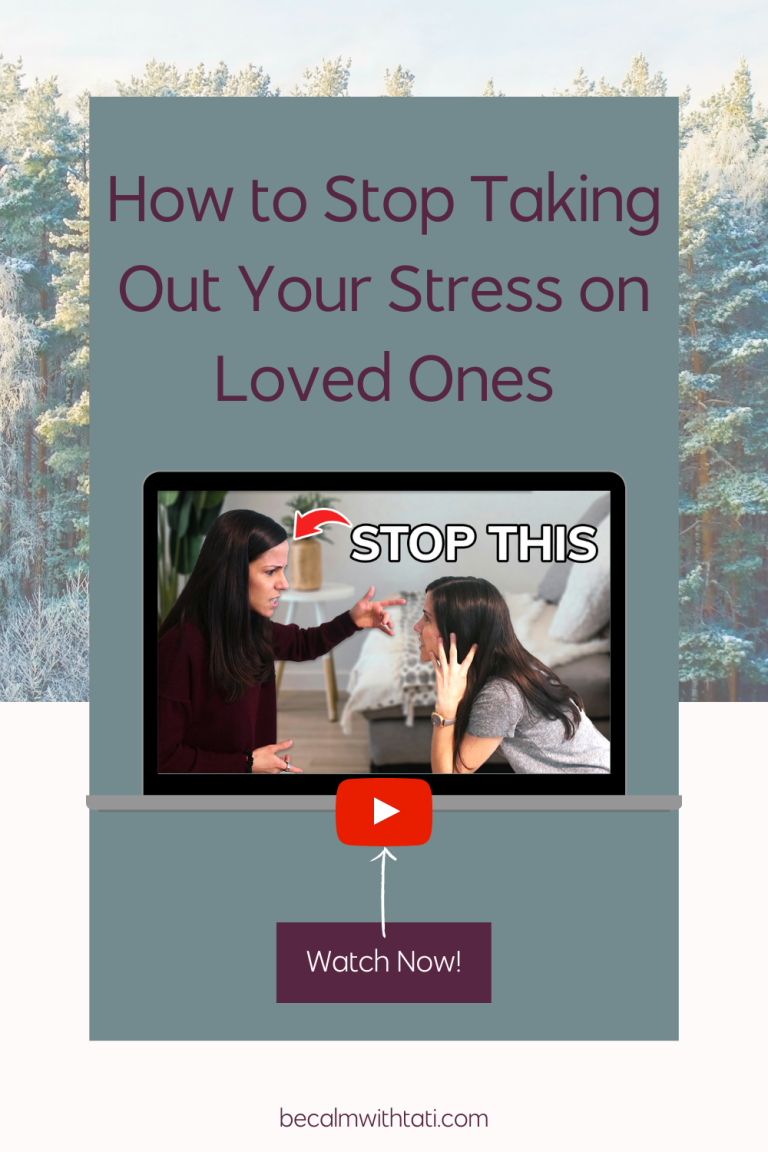Listen now:
What are the best self-care practices for decreasing anxiety?
Self Care isn’t just face masks and bubble baths. Self Care is the act of protecting your well-being and happiness, which includes caring for your physical health, setting boundaries, social relationships, and more.
The Categories Of Self-Care
There are eight different general categories of self care:
- Physical self-care is taking care of yourself physically, through things like exercise, nutrition, caring for your body, bathing, and other routines of caring for yourself.
- Professional self-care includes your career goals and setting boundaries at work taking breaks.
- Financial self-care includes budgeting, being aware of your bills, and being aware of your finances and your financial goals.
- Spiritual self-care includes things such as meditation, prayer, reflection, and being outside in nature.
- Social self-care is your relationships. It includes things like social media and includes family, friends, and setting boundaries.
- Emotional self-care is taking care of your emotions. This includes checking in with how you’re feeling, journaling, processing emotions, and acknowledging your emotions.
- Personal self-care is your personal goals. This can include hobbies, creativity, your values, and your passion and purpose.
- Space/environmental self-care is feeling safe in your environment. It’s having an organized and clean environment, and feeling comfortable in your environment.
Now, these are just a few examples that I mentioned for each one. But the important thing about self-care is that it’s not about checking things off a list and doing what other people are telling you to do, or what you think you should be doing.
Self-care for anxiety is unique to you
Self-care is about doing what’s best for you in the moment. It’s about asking yourself, “what do I need right now and what is best for me in this moment?”
Now, when you have anxiety, self-care is especially important because it can be easy to allow your anxiety to dictate your behaviors. And make you want to always be busy, or worrying, or feeling guilty for self care. Especially if you have high-functioning anxiety, you can feel pressured to be doing more, to always help others before yourself, and to feel as though other people don’t understand the necessity and the importance of your time for self-care.
To be cliche, self-care is not selfish, and you deserve to take care of yourself before others. You cannot provide help to others if you’re not taking care of yourself first by recharging your batteries and taking the time and energy to fill up your cup first and take care of your basic needs.
8 Types Of Self-care when you have anxiety

1. Exercise
Exercise is really important, and it doesn’t have to be intense exercise. Just moving your body is really important when you have anxiety, and that’s because anxiety is really just energy. What happens when you have anxiety is that there’s this buildup of energy that happens, because you’re worried or you’re fearful, and your body wants to escape or avoid a situation.
This is physical energy that’s accumulating in your body. Exercise is a great way to get this out. I have an entire podcast episode on exercise and the benefits of exercise for both anxiety and depression that you can listen to here. Ultimately, exercise is massively important for your mental health. Not only are you taking care of yourself and your body, but you’re also moving your body to get out that excess energy that builds up when you have anxiety.
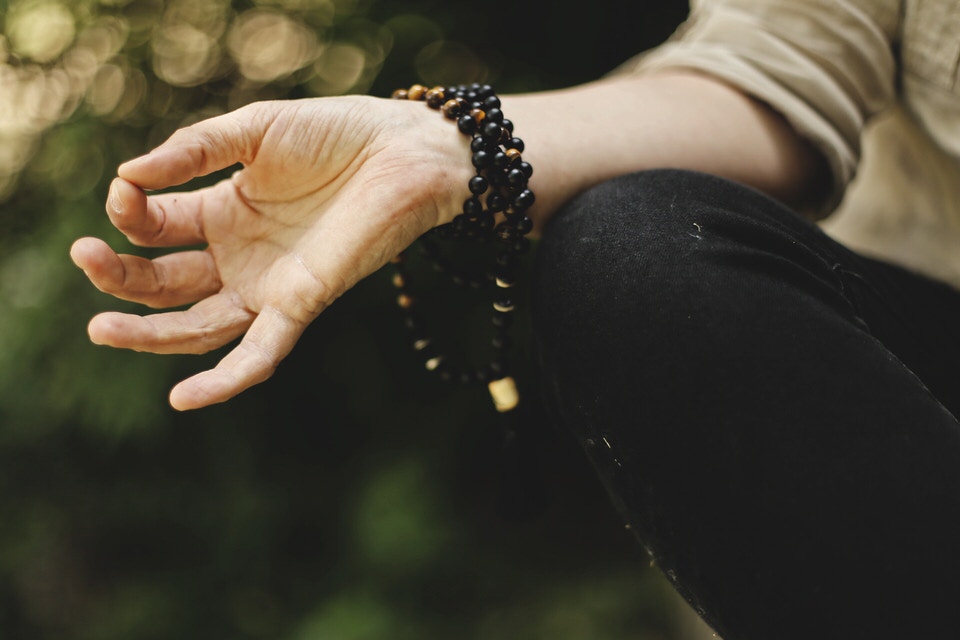
2. Meditate
When you meditate you are really just becoming aware of your thoughts and what’s going on within you and around you. You become a non-judgmental observer of your experience. This is very important when you have anxiety because it’s really easy to get sucked down the rabbit hole of overthinking, worrying, and thinking of the worst case scenario.
When you meditate regularly, then you’re able to catch yourself before you get sucked into that rabbit hole. And you’re able to prevent those anxious cycles from starting and from getting worse. Meditation also allows you to recognize the physical sensations that come up when you have anxiety. So you can be aware of how you’re feeling and then make choices so that you can maybe calm your body physically, so that you’re going to feel calmer as a result.
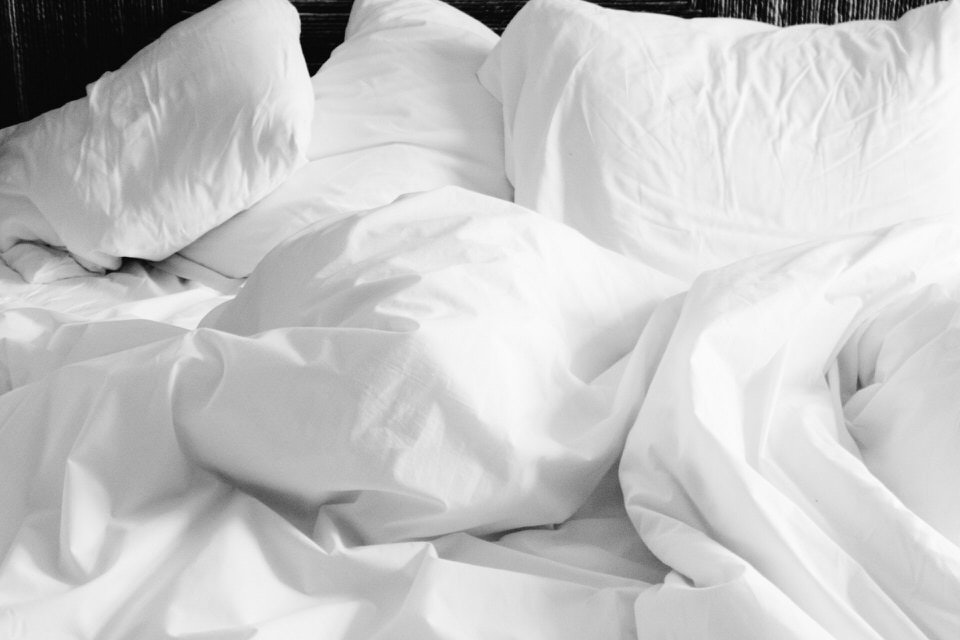
3. Get enough sleep
You may not think of sleep as self care, but it really is because sleep is essential for your body to repair and recharge overnight. Not only does sleep help you to rest, of course, but sleep also allows your body and your cells to repair overnight.
Sleep also aids in your memory. Studies have shown that people were better able to retain information that was learned after having slept than before. Sleep also helps your body regulate your hormones, which is responsible for your mood and hunger. It is also important for your mental health, and especially for anxiety.
You may notice that you might be more sensitive to your anxiety triggers and have a lower mood if you don’t get enough sleep. Sleep allows your body to repair overnight so that you’re able to cope with the stressors and the triggers that might come up for you during the day.
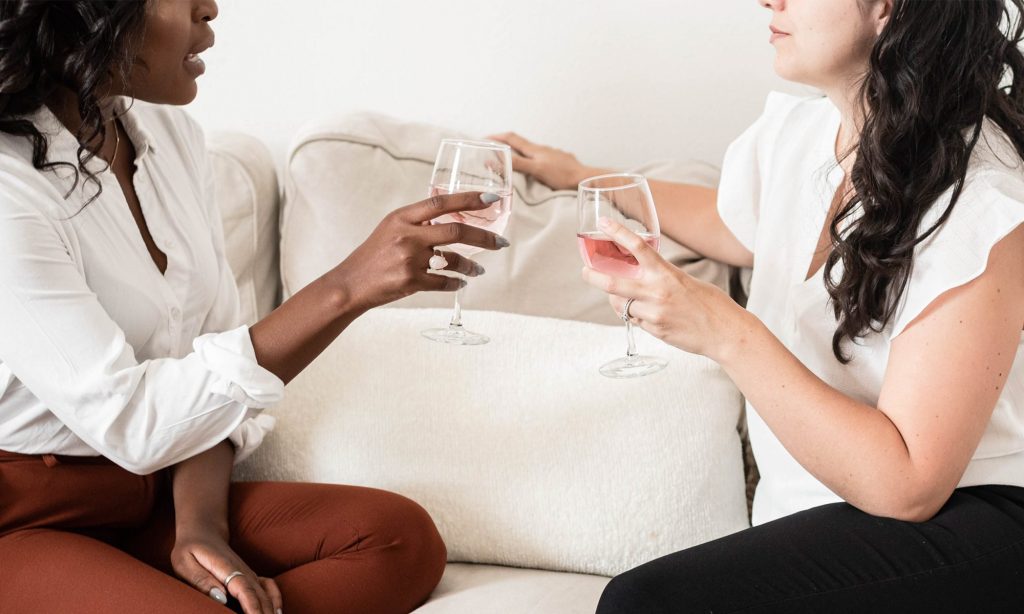 4. Have a support system
4. Have a support system
Another form of self-care when you have anxiety is having a positive support system. It’s really important that you feel supported and that you have people to reach out to when you are in need. Seeking out support is an aspect of caring for yourself and having a place to share what’s on your mind.
Make sure that you have a support system, whether that is friends, family members, a therapist, a coach, or co-workers. Everybody needs help and it is beneficial and validating to have a safe space to speak your mind and get advice, if needed.

5. Get outside
Getting outside is going to get you moving and it’s also going to allow you to have sunlight and to get out of your home, especially if you’re stuck in quarantine. Even if it’s just getting outside for a quick walk down the block or just to sit outside.
Even in the winter it can be important to get outside just to have sunlight (because that’s important for your mental health), to get your body moving, and to have a change of environment.
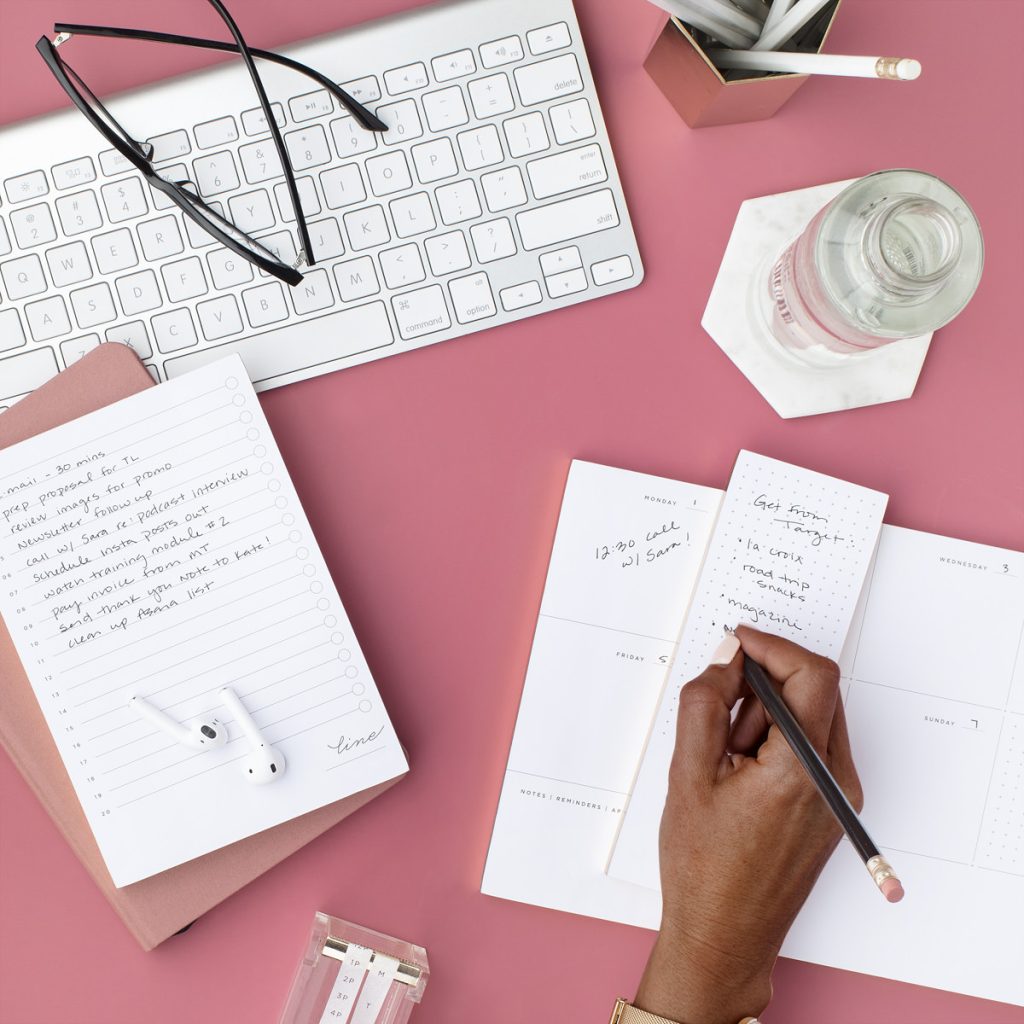
6. Have structure in your day
Structure can be very important when you have anxiety because a lot of anxiety can come from uncertainty, not knowing what to expect, or feeling like you don’t have control. When you create structure, you’re taking control and you’re creating more certainty within your day.
Structure can be especially important if you’re working from home right now and the boundaries are blurred between work and relaxation. It can really help you to feel more balanced and less anxious.
Now, it’s important to keep in mind that you don’t want to be too rigid with structure because then if unexpected things come up it can be hard for you to adjust. So it’s important to have structure, but also be flexible and have the expectation that things will not always turn out as you expect.

7. Have a hobby or pastime
Having a hobby or pastime can be really important because it’s a way to take care of your mind and do something that’s creative, or something that you enjoy engaging in. It’s also getting your mind off of things. If you’re spending your free time watching TV or scrolling through your phone, then that’s not going to be as nourishing for your mind. And it’s not going to necessarily take your mind off of things and be something that you’re really fully engaged in.
Whereas if you have a hobby or something creative that you’re working on, this has a few benefits. The first benefit is that it’s going to help your self worth, because you’re going to be creating something and working towards something that’s going to help you feel better about yourself and your capabilities as a person. And it’s also going to help you because it’s going to give you something to focus on, which is going to put you more in the moment. This is going to make it less likely that you’re overthinking things.
Some ideas for hobbies are playing an instrument, doing arts and crafts, woodworking, home improvement, the options are endless! It can be anything that you really enjoy, and that is going to really engage you fully in the activity.
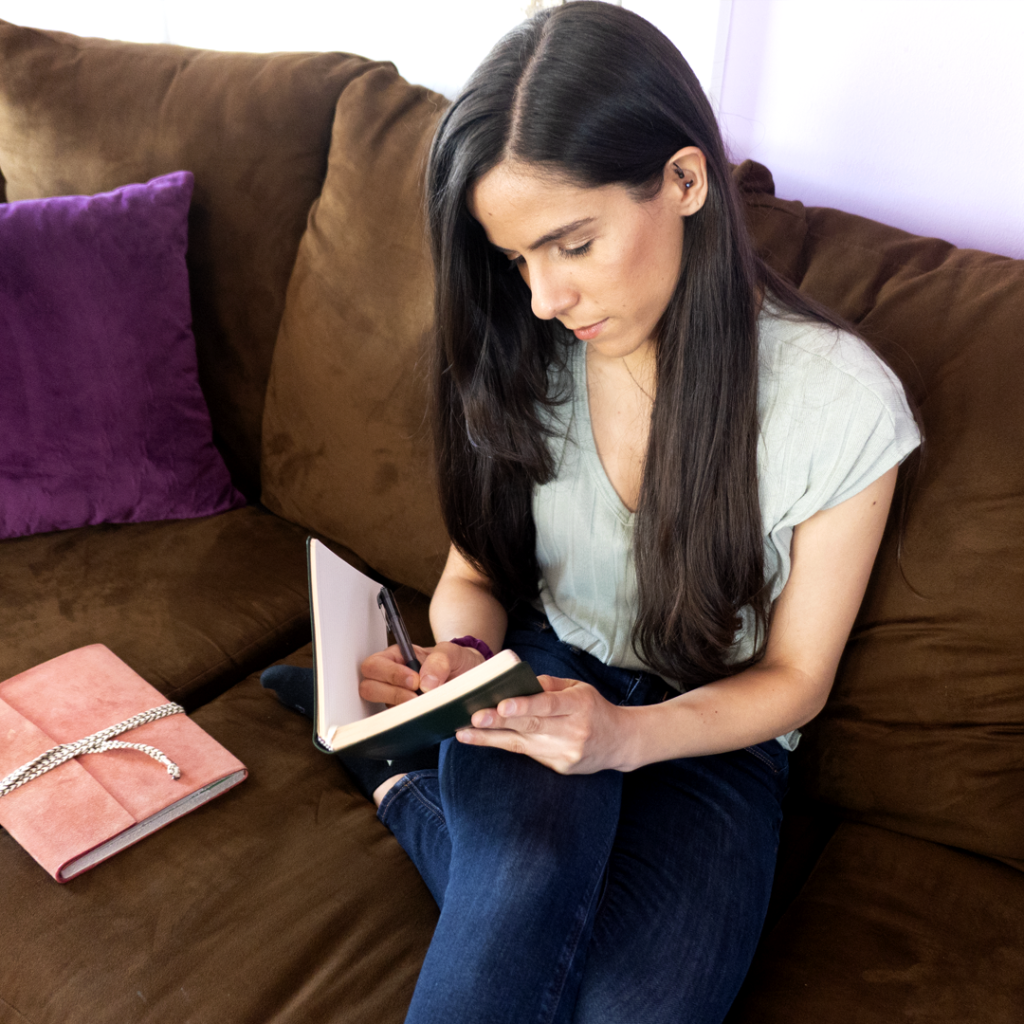
8. Journal or reflect
It’s very important to take time for journaling or reflection. If you don’t like journaling, you can practice reflecting on how you’re feeling and what’s coming up for you so that you can put things into perspective.
When thoughts are just in your mind, they kind of swirl around and feed into each other. When you have anxiety, these thoughts often turn into the worst case scenario, or fears feel a lot bigger than they actually are.
If you’re able to journal or reflect upon what’s going on in your mind it can help you to put things in perspective and maybe realize that these fears aren’t as bad as you really make them out to be. It gives you a good opportunity to learn more about yourself, as well as to check and challenge those thoughts and those fears that may be coming up.
Practicing Self-Care When You Have Anxiety
I hope that this list of tips was helpful for you. Your action tip is to identify one of these self-care habits to focus on improving over the next few weeks. Pick the one that resonates with you most and that you feel will be most healing and nourishing for you. And as always, this list is suggestive and not prescriptive. Take what resonates with you and leave the rest!
Focus on assessing your needs in the moment and learning the practice of listening to yourself. Put this into action and let me know how it helps. I’d love to hear your feedback in the comments below!
